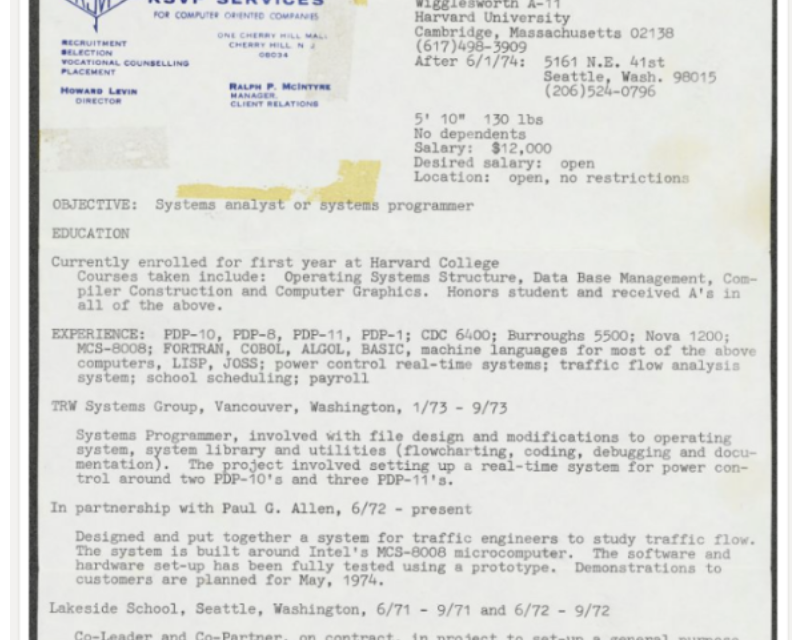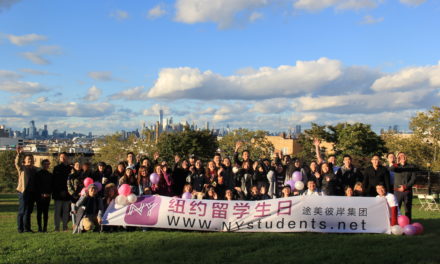
For job seekers, if you want to find a good job, an excellent resume is indispensable; for recruiters, it is like reading this person’s resume.
How important is a resume? According to the survey, the average time for recruiters to read a resume is only 6 to 7 seconds, so it is important that every second counts for a job seeker’s resume. A strong resume can help you stand out from the crowd.
It is difficult to say that having a beautiful experience background means that you will definitely be able to find an ideal job, but a good job must require a brilliant “front” resume to take the lead. How to make an outstanding resume is also one of the perennial headaches for job seekers.
Recently, American business magnate, Microsoft co-founder and now the fourth richest man in the world, William Henry Gates III – Bill Gates (Bill Gates), shared his “old” 48-year-old on LinkedIn, the world’s most famous job search website. Resume, was quickly spread all over the Internet.
This old resume dates back to 1974, Gates’ first year at Harvard. Before diving into his educational background and work experience, Gates describes his professional skills and ideal positions on his resume, including systems analyst or systems programmer.
He also mentioned related courses he took at Harvard, coding skills acquired in two different jobs in his hometown of Seattle, and a collaboration with Paul Allen.
Such a resume that has cultivated the future richest man in the world and a giant in the software industry has now been pointed out by some professional experts that some details should not be mentioned on the resume.
Talk too much
The resume, which Gates wrote on a typewriter when he was 18, mentions his then-university dormitory address and some personal details, including his height, weight and family issues. These overly detailed descriptions are no longer suitable for today’s workplace.
Lack of verb variety
While the line-by-line format for different resumes may vary, Beth Hendler Grunt, founder of career coaching service Next Great Step, emphasizes that using verbs to show what you have accomplished in each experience or position works better.
She advises not to state every sentence in bland terms like “responsible for”, such as “I’m responsible for the office filing system.”
Instead, use the past tense of verbs like “build,” “created,” or “developed,” and try to use a different verb for each experience that reflects what you’ve done, accomplished, and achieved.
Gates’ use of the verb stops at “designed” to describe the transportation system he created. He leans heavily towards more passive and repetitive words like “involved with”.
Distracting content
Gates chose to add nonexistent stickers to his resume, such as a paragraph in the upper left that looked like a business card for a career services company. It’s especially bad in prime spots at the beginning of a resume, where the recruiter’s eye will be drawn first.
On your resume, you want to reflect your personal accolades, education, and achievements, not free ad space for the company.
Use resume space wisely, and don’t clutter your resume with unnecessary content and obtrusive colors, expert Cenedella warns.
Other than that, Gates’ style and form are fairly consistent with what traditional recruiters would expect. Despite the flaws, it is certain that Gates knows exactly what he is doing and what he wants. Twelve years after this resume was submitted, he was a billionaire; six years later, he was the world’s richest man.
Maybe the secret to success really includes your height, but in most cases it’s hard to count on it for the ideal job.









